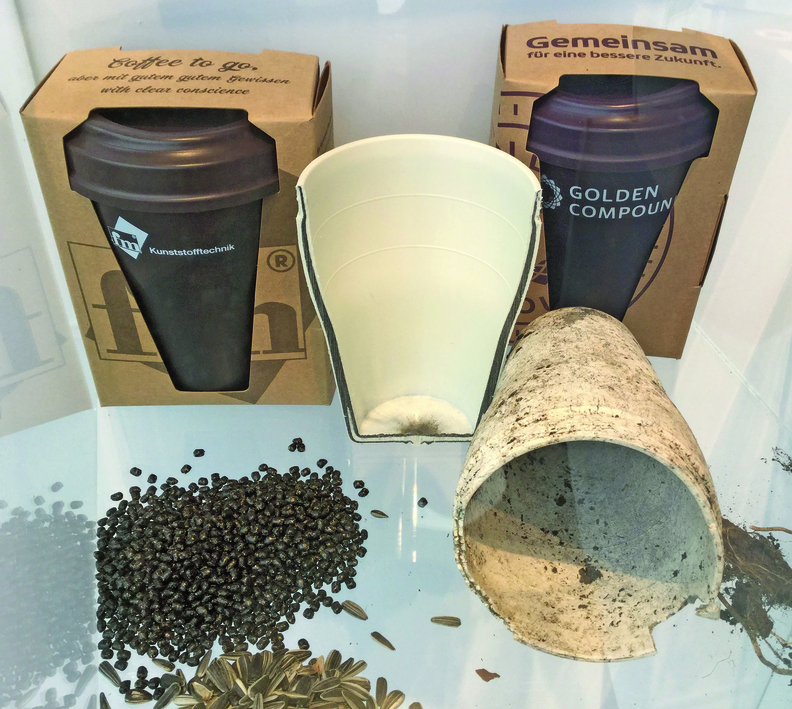The pods were molded at the booth of Campetella Robotic Center srl on a Netstal Elion 1200-510 injection molding machine.
Ladbergen, Germany-based Golden Compound GmbH supplied the compound, derived from the BioPBS bio-based polybutylene succinate semicrystalline polyester produced by MCPP Mitsubishi Chemical Performance Polymers.
BioPBS contains up to 70 percent natural fiber from sunflower seed husks, according to Golden Compound, which was founded in 2014 and is a wholly owned subsidiary of SPC Sunflower Plastics Compound GmbH.
The company has production capacity of 3,000 metric tons of BioPBS compounds annually in Ladbergen.
Here is no shortage for raw material for BioPBS, as 30 million metric tons per year of sunflower are produced worldwide, creating 6 million tonnes of sunflower seed husks. There are close links between Golden Compound and Bösel, Germany-based injection molder FM Kunststofftechnik GmbH.
Unlike some other biodegradable plastics, BioPBS does not compete with agricultural resources needed for food production, but it in fact solves the problem of waste material coming out of sunflower oil production.
FM Kunststofftechnik has also used BioPBS in the design of a “coffee to go” cup and screw-on lid, referring to the two grades of BioPBS material as “SP2C.” Unlike the coffee pods, this is not a single-use item, but one that can withstand 500 dishwashing cycles.
Molding of the cup and its lid were displayed by Bellignat, France-based injection molding machine producer Billion SAS. The demonstration used two BioPBS compounds in a core area of Billion competence: sandwich molding.
Billion CEO Corbinian Kiesl said development work on the project built upon a previous project molding polypropylene paint tubs with a core layer of recycled PP.
The tubs and covers were molded on a new 200-tonne Select H2670/780 all-electric drive injection molding machine. The molding partner in this case was Steinfeld, Germany-based Burwinkel Kunststoffwerk GmbH. The production cell was equipped with auxiliary equipment from Moretto SpA and a pad printer from Tampoprint AG.
With density of 1.26 grams per cubic centimeter, BioPBS is much heavier than PP, as can be felt when handling the mugs. The overall shot weight was 177 grams, of which 67 grams for the lid and 110 grams for the outer layer. Kiesel says the reason for sandwich molding was that a combination can be made of a harder BioPBS compound in the core and a more flexible one on the outside.
Source: Plastics News
Photo Credit: David Vink
